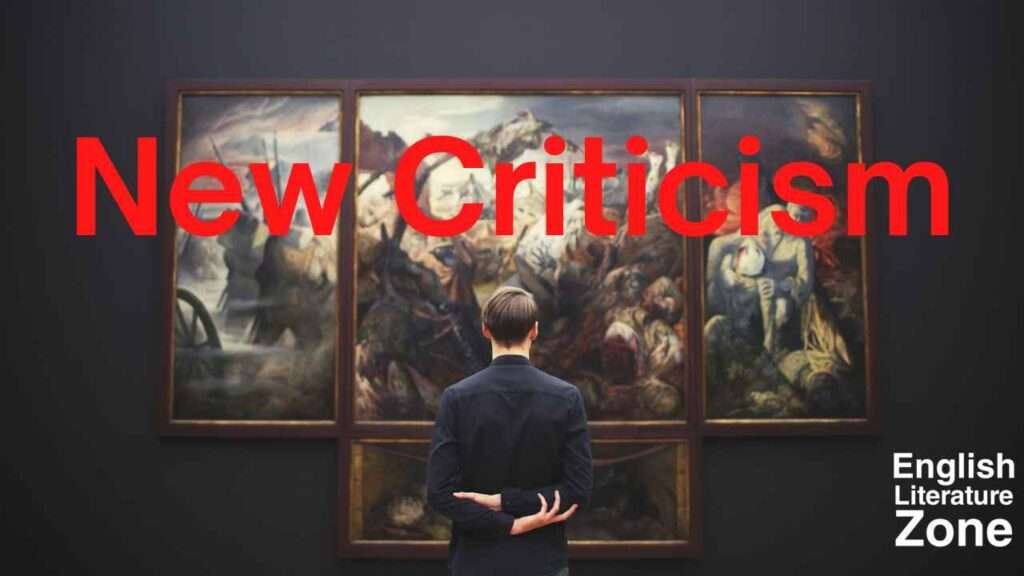
Introduction
‘The Good Woman Of Setzuan’ or ‘The Good Woman of Szechwan’ is a play written by ‘Bertolt Brecht’, in collaboration with ‘Margarete Steffin’ and ‘Ruth Berlau’. It was written between 1938 to 1941 when Brecht was living in exile in the United state due to Nazi rule and World War II. It is an example of a non-Aristotelian drama, a form made popular by Brecht and defined in his notes and essays entitled ‘On a non-Aristotelian drama’. The original name of the play was ‘Die Walare Liebe’ Brecht dedicated the play to his wife, ‘Helene Weigel’.
The play’s title is often translated as ‘The Good Woman of Szechwan’, rather than “Setzuan”, but Szechwan is a province, while Setzuan is a city. According to translator ‘Eric Bentley’, Brecht identified the location of the play as ‘a city’, so he must have meant Setzuan.
Character List
Wong – A water seller. He interacts with the gods in dreams.
Three Gods – Three Gods arrive at the city of Setzuan, looking for a good person.
Shen Te/Shui Ta – Shen Te is a former prostitute who has bought a tobacco shop with the money the gods gave her after she let them spend the night in her home. Shen Te invents a male Shui Ta, her supposed visiting cousin.
Mrs. Shin – Former owner of Shen Te’s tobacco shop.
Yang Sun – An unemployed pilot with whom Shen Te falls in love.
Mr. Shu Fu – A barber who wants to marry Shen Te.
Unemployed Man, Carpenter Mrs. Mi Tzu, Policeman, Old Man, Old Woman, Mrs. Yang are some other characters in this play.
About The Author
As we know the play was written by Bertolt Brecht in collaboration with Margarette Steffin and Ruth Berlau. Brecht was one of the most influential playwrights of the 20th century. He also wrote a wide variety of people. His works include- ‘The Three Penny Opera’, ‘Mother Courage and Her Children’, ‘Life of Galileo’, and ‘The Good Person of Szechwan’.
Steffin was a German actress writer and translator and Brecht’s secretary. Berlau was a Danish actress, writer, photographer and director. Both women were Brecht’s lovers.
Character Sketch of “Shen Te”
‘Shen Te’ is the central character around which Bertolt Brecht’s epic play ‘The Good Woman of Setzuan’ is written. Bertolt Brecht was a master of characterization in his works. He believed that theatre should be a tool for social change and that characters should be used to challenge the audience’s assumptions about the world.
‘Shen Te’ is a female character who disguises herself during half of the pla Shui Ta, a male. Through this character. Brecht presents his most famous dramatic technique of split personality that becomes a medium to represent conflict, morality, and reality. Thus the split character to Shen Te and Shui Ta serve as a model to explain Brecht’s themes of social injustices.
Shen Te is introduced as a “good Woman” who is a prostitute by profession. The conflict begins from this moment as the playwright shows an individual can retain good moralities even after beginning in a socially unapproved profession. Shen Te is generous, kind, and helpful to everyone irrespective of class or creed. When the gods stay at her place, their faith is restored in humanity. But at the same time, the Gods don’t want others to know that they stayed in a prostitute’s room, as the ‘Incident is open to misinterpretations’.
Through Shen Te/ Shui Ta, Brecht has made a ‘division within the same person’ of humane Vs inhumane and kind vs. cruel. The play is of ‘disguise’ survival and self-improvement and Shen Te has to pass through a journey of ups and downs throughout the play. She tries to retain her goodness while
- Helping her neighbour
- Helping her lover, and
- Protecting her son from the cruel world.
But because people take advantage of her good nature, she has to create an alter ego of Shui Ta. The two characters are completely different yet help each other through various events.
Shen Te takes multiple roles in the play. She is a prostitute, a shopkeeper, a lover, and a mother. In every role, Shen Te is required to have a different set of virtues and vices. As a shopkeeper, She must know how to make profits but as a lover, she surrenders herself completely to Yang Sun. Later one, as a mother she wants to become feracious to ensure her child’s happiness. All her weaknesses as a woman get covered when she turns into Shui Ta. Her pity generosity, love, and passion, take a backseat, and Shui Ta’s pragmatism leads her life.
As Shui Ta, ‘The Good Woman of Setzuan’ becomes rough and Strict. Shui Ta is only concerned about his profits and gains. He does not care about people and circumstances. He is firm and stern is his decisions. He helps in making Shen Te’s small tobacco shop into a big profit-making factory. This indirectly helps the people of the city in getting jobs. Hence Shen Te is able to continue her charity only through the materialistic gains created by Shui Ta. Though both are absolutely different from one another, they help each other sustain in the world.
Brecht shows that if circumstances allow, every individual can be a good person. But it is the surroundings that forces people to take up bad attributes. Shen Te was innately a good human being but she had to take up many vices in order to sustain her life in the world. This is why, in the end, the gods do not punish Shen Te. They praise ‘the good woman of Setzuan’ and leave for the heavens after learning about the truth of Shui Ta. Shen Te is not a heroic character but neither Shui Ta is a villain.
Brecht presents the story of every human being through the struggle of Shen Te. The playwright shows that people are capable of being good and doing good. If the Situations can be altered, if the world can be made into a better place, every person can become good and kind.
Justification Of The Title ‘The Good Woman Of Setzuan’
The title of the drama ‘The Good Woman Setzuan’ is very suggestive as it clearly speaks of the theme of goodness from the beginning of the play, the theme of goodness comes out with God’s definition of who a good person is. According to the gods, a good person is one who lives a life that is worthy of human beings. Three gods come to the earth is search of a good person.
After a lot of wandering, they find only greed, evil, dishonesty and selfishness. Finally, they find some goodness in Shen Te, a young prostitute of Setzuan. She is rewarded for her hospitality, as gods take it as a sure sign of goodness. They reward her with a thousand dollars.
According to the gods, goodness cannot survive long if there is no demand for it. They mean to say that it is difficult for a human to achieve goodness without support from other people. Shen Te buys a small tobacco shop with the gifts of the gods. She hopes to help others through the shop by spending profits on such things as food for the hungry.
But most of the people she is trying to help take advantage of her generosity. They want food money, shelter, and constant service. Shui Ta discovers that it is difficult to succeed at being a good person under these frustrating conditions. So she creates an alter ego to help her keep her shop. The helper is her male cousin Shui Ta. Eventually, she realizes that she can not survive without him.
In the drama ‘The Good Woman Of Setzuan’ there is another instance of goodness. Shen Te meets a young pilot in a public park and promises to help him in getting his job. They fall in love with each other. Later on, she employs Yong Sun as a foreman in her factory because she has failed to help him with enough money to get his job.
In the drama, there is also one instance of goodness when Shen Te offers the Old woman money to pay her rent. Shen Te’s perception of goodness changes during pregnancy, further highlighting the theme of goodness. When she sees the Carpenter’s child digging in the trash. She vows that she will be good to her son and a tigress to others. She says,
‘To be good to you, my son I shall be tigress to all others
If I have to do, and I shall have to.’
Despite Shen Te staying good, Wong’s hole helps to cast doubt on her good image. After the revelation by Shen Te in the court, that she was also Shuii Ta, the gods could not believe that she did bad things. The first, in particular, insists on congratulating her for remaining good. After the Gods leave, Shen Te remains with her problems and still struggles to achieve goodness.
Thus we find that The title of the drama ‘The Good Woman of Setzuan’ is very suitable as it clearly speaks of the idea of goodness as the primary theme. Other themes of the play include the ideas of economic strain, money-driven economic strain, money-driven despair, wealth and poverty, reform, and deception.
Summary of The Drama
The play starts with Wong, a water seller, explaining that he is on the city outskirts awaiting the foretold appearance of several important gods. Soon the gods arrive and ask Wong to find them shelter for the night. They are tired, having traveled far and wide in search of good people who still live according to the principles that they, the gods have handed down.
Instead, they have found only greed, evil dishonesty, and selfishness. Wong tries to find someone who will shelter the gods for the evening, but they are turned away at every door in town. Eventually, a kind prostitute named ‘Shen Te’ agrees to take the gods in. In the morning gods thank Shan Te, for the hospitality and they tell her that she is the only “good human being”. The gods shove over a thousand silver dollars into Shen Te’s hand and they depart.
Shen Te uses the money the gods give her to rent a tobacco shop but she soon finds herself in trouble as news of her good fortune spreads throughout town. ‘Mrs. Shin’, the former proprietor of the store, the carpenter, and An unemployed man, everyone asks for something according to their needs from Shen Te. ‘Mrs. Mi Tzu’, the landlady, demands male references who can vouch for Shen Te’s finances as well as six-month rent in advance. Shen Te claims she has a cousin, Shui Ta, who is a savvy businessman. She promises that Shui Ta will visit soon to meet with Mrs. Mi Tzu and vouch for Shen Te.
The gods continually visit Wong in his dreams to check in on whether Shen Te has remained good. Things get more and more complicated for Shen Te. Shen Te begins disguising herself as “Shui Ta” in order to make the ruthless business.
Shen Te, dressed as Shui Ta, kicks the family of eight out during business hours, threatens the carpenter, haggles with Mrs. Mi Tzu, and even puts an ad in the paper for a wealthy husband who can help Shen Te run her business. When Shen Te meets a pilot named Yand Sun is poor and cruel, Shen Te loves him too deeply. Shen learns that Yang Sun is only using her for her money. She falls pregnant with his child.
Meanwhile, each time the gods visit Wong in his dreams, he tells them of Shen Te’s trials, but the gods insist that Shan Te’s burdens will only give her greater strength and more goodness. Shen Te decides to stay in disguise as Shui Ta.
Though the tobacco of the village begins missing the sweet, generous Shen Te – and even worrying that Shui Ta has murdered her. When a policeman confronts Shui Ta and demands to know where Shen Te is, Shui Ta cannot answer. He is arrested. He is taken to court. During the process of her trail the gods enter in disguise as a trio of judges to hear the arguments. Shui Ta demands for the courtroom to be cleared because he has a Confession to make to the judges.
Alone in the room with the gods, Shen Te drops her disguise and she reveals the truth to them. The gods are shocked. In a sorrowful lament, Shen Te describes how hard it has been to try “to be good and Yet to live”. Shen Te points out that she failed to be a good woman and instead became a “bad man”. She begs the gods to tell her what to do about all of her entanglements the gods however, tell her simply to ‘continue to be good’.
Conclusion
Thus it is clear that like most of Brecht’s plays, his Marxist ideals heavily influenced “The Good Woman of Setzuan”. It questions whether it is possible to survive as a reasonable person in a capitalist society. Through this play, Brecht illustrated the difficulty of being good and staying good in any society. It represents the class struggle between the bourgeois and the working class, the struggle between good and evil, or the conflict between and women.
- Mechanical Reproduction By Walter Benjamin | The Work of Art in the Age of Mechanical Reproduction

- The Interpretation of Dreams By Sigmund Freud

- Victorian Period | Victorian Literature and Culture

- Dear Life by Alice Munro Summary, Themes, & Analysis

- The Lotos-eaters by Alfred Lord Tennyson

Are you struggling to keep up with your English Literature Coursework? Do you need detailed, customized English Literature Notes to help you better understand the texts you’re studying? “Look no further! Our customized paid notes will help you achieve your study goals quickly.
Related Tags: The Good Woman of Setzuan, The Good Woman of Setzuan summary, The Good Woman of Setzuan summary and analysis, The Good Woman of Setzuan analysis, The Good Woman of Setzuan book, The Good Woman of Setzuan story, The Good Woman of Setzuan play, The Good Woman of Setzuan literature, The Good Woman of Setzuan in English literature, The Good Woman of Setzuan in literature, The Good Woman of Setzuan book summary, The Good Woman of Setzuan notes.









